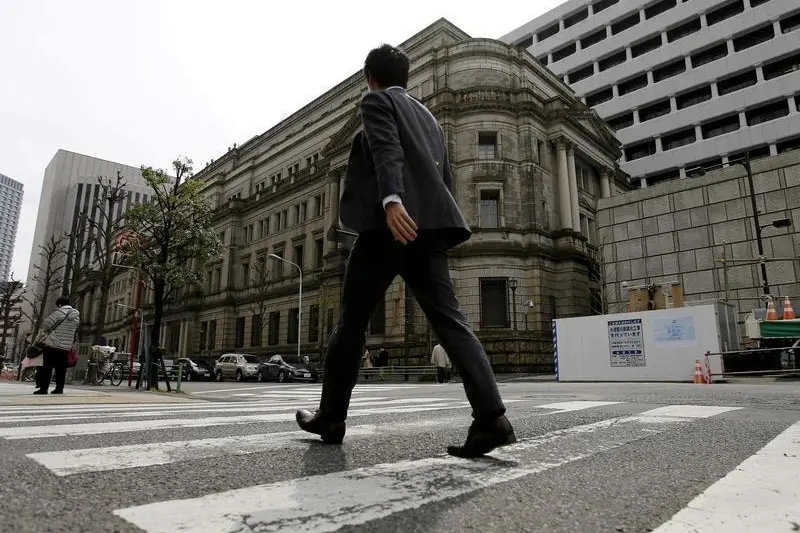PHOTO
TOKYO - Any future interest rate hike by the Bank of Japan (BOJ) will likely be gradual and have a limited near-term impact on the country's debt financing, an official at global ratings agency Moody's Investors Service said on Friday.
While Japan's huge public debt is negative for its credit profile, such weakness is offset by the country's huge savings and domestic investors' strong home bias, Moody's Senior Vice President Christian de Guzman said.
"Our view on interest rates is that, in the event of a normalisation, the BOJ will only gradually increase rates and therefore the near-term impact on Japan's debt finance will be limited," de Guzman told Reuters in an interview.
"What's important is the ability of the government to fund itself at very favorable interest rates. We don't see this as necessarily having changed," he said. "The government still has very comfortable funding situation."
De Guzman, however, pointed to growing market concerns over the sustainability of the BOJ's yield control policy, which is being put to test by investors betting on a near-term rate hike.
"How they go about managing the transition will inform our assessment of monetary and macro-policy effectiveness. And currently, it's a very risky time," he said.
As rising inflation puts upward pressure on bond yields, markets are rife with speculation the BOJ will phase out yield curve control (YCC) when dovish Governor Haruhiko Kuroda's term ends in April.
Any rise in yields, even if small, would increase the cost of financing Japan's huge public debt which, at twice the size of its economy, is among the largest in the world.
In a move that will add strain to Japan's already worsening finances, Prime Minister Fumio Kishida has announced plans to boost spending on defence and steps to raise the birth rate.
De Guzman said he welcomed the government's commitment to achieving a primary budget surplus - excluding new bond sales and debt-servicing costs - in the fiscal year to March 2026.
But he said Kishida's economic and fiscal policies were "not very well articulated" and lacked details on how the spending plans would be funded.
Moody's will look at the balance between Japan's huge debt and its favourable funding conditions when deciding on the country's sovereign debt rating, de Guzman said.
"If this balance is unsettled, there is a likelihood of a re-positioning in our rating," he said on potential triggers for a downgrade in Japan's sovereign debt rating.
Moody's currently assigns an A1 rating for Japanese sovereign debt, the fifth highest in the agency's 21-notch global rating scale. It was downgraded from A3 in December 2014, after the government's decision to delay a sales tax hike to 10% from 8%. The tax hike eventually took effect in 2019.
(Reporting by Leika Kihara; Editing by Jamie Freed)





















